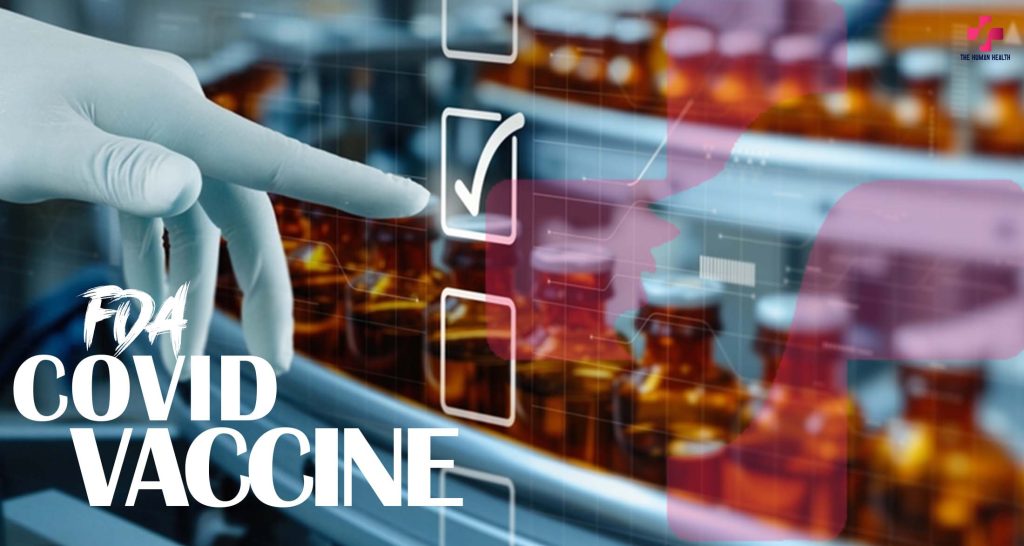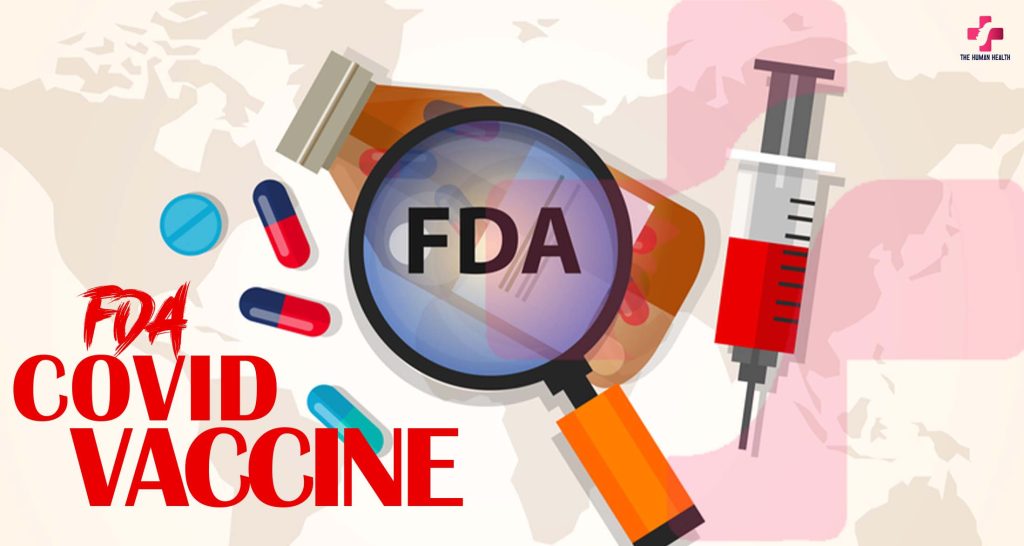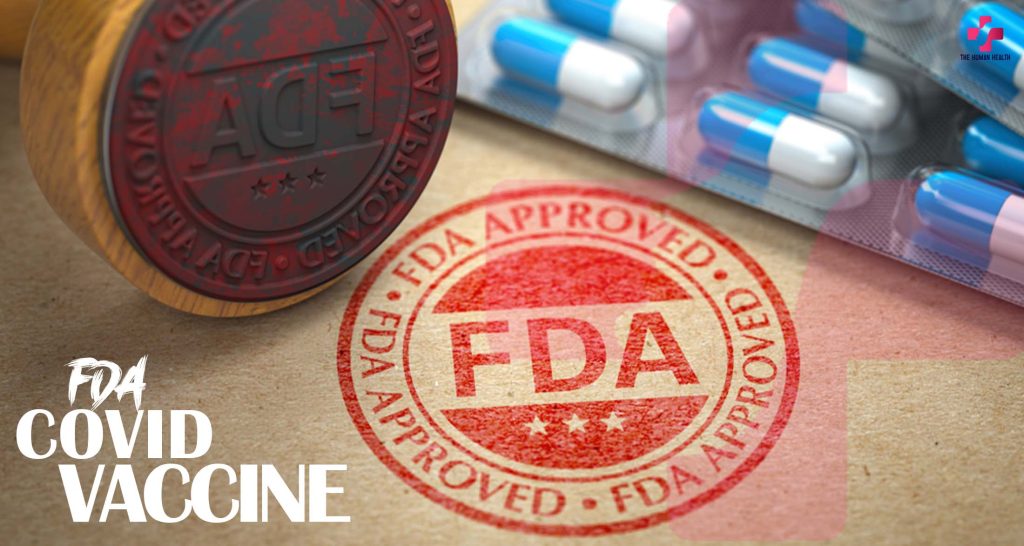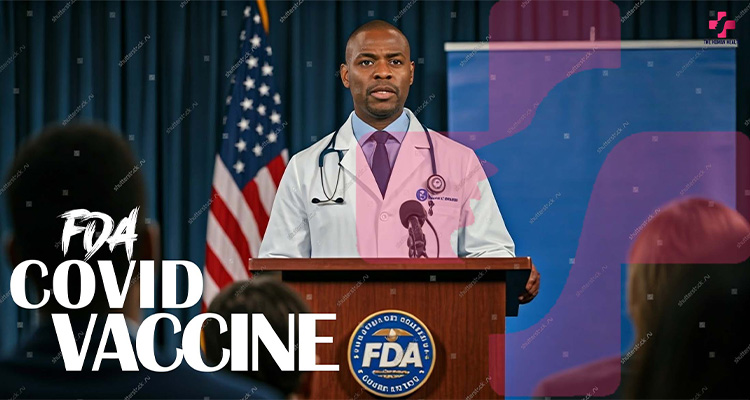FDA Covid Vaccine introduction
The FDA helped approve COVID-19 vaccines during the pandemic. They made sure the vaccines were safe and worked well. Vaccines from companies like Pfizer, Moderna, and Johnson & Johnson used new technology, like mRNA.
Before any vaccine could be approved, it had to be tested. The FDA made sure to check how the vaccine worked and if it had side effects. The tests were done in steps. The FDA carefully watched the tests to make sure everything was safe
The FDA also approved the vaccines quickly under emergency rules. This helped get the vaccines to people faster. Pfizer and Moderna vaccines were approved in December 2020. The Johnson & Johnson vaccine was approved in February 2021. This fast approval helped hospitals and saved lives.
In August 2021, Pfizer became the first vaccine to get full approval. This was based on strong test results and real-world data. The FDA reviewed everything closely to make sure it was safe.
After vaccines were approved, the FDA kept checking them. They used a system to track any problems. The FDA worked with the CDC to keep people safe. This system helped keep vaccines safe for everyone.
The FDA also approved booster shots. These shots help protect against new types of the virus. The FDA kept updating the rules to make sure the vaccines worked well.
In the end, the FDA’s work helped make sure the vaccines were safe and worked well. Their careful work saved lives and helped fight the pandemic.
What COVID Vaccines are FDA approved?
As of 2025, many COVID-19 vaccines are now approved or authorized by the FDA. These vaccines have helped stop the spread of COVID-19 and protect people from serious illness. Here are the main vaccines:
- Pfizer-BioNTech (Comirnaty)
The Pfizer-BioNTech vaccine, called Comirnaty, was the first to get full FDA approval. It was first given emergency approval in December 2020. On August 23, 2021, it was fully approved for people 16 and older. It is also available for children ages 5-15 and for booster shots. This vaccine helps the body fight the virus by teaching it how to recognize the spike protein. - Moderna (Spikevax)
The Moderna vaccine, Spikevax, was given emergency approval in December 2020. Like Pfizer, it uses the same mRNA method to help the body fight the virus. The FDA approved the Moderna vaccine for people 18 and older on January 31, 2022. It is also used for booster shots and can be given to kids as young as 6 months. - Johnson & Johnson (Janssen)
The Johnson & Johnson vaccine, called Janssen, was given emergency approval on February 27, 2021. It is different from the others because it uses a viral vector, which is a modified virus to teach the body how to fight COVID-19. This vaccine only needs one dose. However, it is used less now because of concerns about rare blood clotting. - Novavax (Nuvaxovid)
The Novavax vaccine, called Nuvaxovid, was approved for emergency use on July 13, 2022. Unlike the mRNA vaccines, it uses harmless pieces of the virus to help the body recognize and fight the virus. This vaccine is a good option for people who are unsure about the mRNA vaccines.
Conclusion
These FDA-approved vaccines have been very important in controlling the spread of COVID-19. Vaccines help prevent serious illness and save lives. The FDA continues to check how safe and effective they are. These vaccines offer choices for people who may prefer different options.

Are There Long-Term Effects of The COVID Vaccine?
COVID-19 vaccines have been studied a lot since 2020. People often worry about long-term effects. But the evidence shows that the vaccines are safe in both the short and long term.
Most safety data comes from trials and real-world studies. These trials showed that the vaccines work well to prevent COVID-19. They caused few side effects. After the trials, millions of people were watched closely, which helped learn more about the vaccines.
The vaccines, like Pfizer, Moderna, and Johnson & Johnson, teach the body to fight the virus. They use mRNA or viral vectors to tell the body to make a harmless spike protein. This helps the immune system fight the virus in the future.
Most side effects are rare and mild. They happen shortly after vaccination and go away quickly. Common side effects are pain at the injection site, tiredness, headaches, or fever. Serious side effects, like allergic reactions, are rare. Health agencies like the CDC and WHO watch for these effects to keep the vaccines safe.
Some worry that the vaccine might cause heart problems, like myocarditis, especially in younger men. But this happens very rarely. The benefits of the vaccine—like preventing serious illness and death—are much greater than the risks. The CDC says the risk of heart issues is higher with a COVID-19 infection than with the vaccine.
The vaccines offer strong protection for several months. Over time, protection can weaken. That’s why booster shots are suggested, especially with new variants of the virus.
In short, the current evidence shows that the vaccines are safe and effective. They help prevent serious illness and death. The benefits of vaccination far outweigh the risks of long-term side effects.
Conclusion
These FDA-approved vaccines have been very important in controlling the spread of COVID-19. Vaccines help prevent serious illness and save lives. The FDA continues to check how safe and effective they are. These vaccines offer choices for people who may prefer different options.
What is The Name of The New Pfizer COVID Vaccine?
Pfizer and BioNTech made different COVID-19 vaccines to fight new virus types. The first vaccine, Comirnaty, used mRNA to fight the original virus. As the virus changed, Pfizer updated the vaccine to work better.
Comirnaty Omicron XBB.1.5:
To fight Omicron, Pfizer made Comirnaty Omicron XBB.1.5. It was approved in September 2023:
- United States: The FDA approved it for people 12 and older.
- European Union: The EMA allowed its use.
- United Kingdom: The MHRA approved it.
- Canada: Health Canada approved it.
This vaccine helps the body fight the XBB.1.5 variant.
Comirnaty JN.1:
As the virus changed, Pfizer made Comirnaty JN.1 for the JN.1 variant. It was approved by:
- European Union: Approved on July 3, 2024.
- United Kingdom: Approved on July 24, 2024.
This vaccine helps protect against JN.1.
Comirnaty KP.2:
Pfizer made another version for the KP.2 variant. It was approved in:
- United States: The FDA approved it in August 2024.
- European Union: The EMA approved it on September 26, 2024. Germany started using it on November 11, 2024.
This vaccine helps protect against KP.2.
Economic Impact and Distribution:
Pfizer’s vaccines have helped its business:
- Earnings: Pfizer made $4.465 billion in the third quarter of 2024. This was due to high demand for vaccines.
- Global Supply: Pfizer sends vaccines to many countries.
Public Health Advice:
Health experts say people should stay updated on their COVID-19 shots:
- United States: The CDC says everyone 6 months and older should get the new vaccine.
- Australia: More people are getting vaccinated after a rise in cases.
Conclusion:
Pfizer’s latest vaccines are called Comirnaty. They fight different virus types:
- Comirnaty Omicron XBB.1.5: Fights XBB.1.5.
- Comirnaty JN.1: Fights JN.1.
- Comirnaty KP.2: Fights KP.2.
These vaccines help protect people and show Pfizer’s effort to fight COVID-19.

Which Vaccines Are No Longer Recommended?
Some vaccines used in the past are no longer given. This is because better vaccines exist, diseases have changed, or safety issues were found. Here are some vaccines that are not used anymore.
- Oral Polio Vaccine (OPV)
The oral polio vaccine (OPV) was easy to give and helped prevent polio. But in rare cases, it could cause polio. Because of this, the U.S. switched to the inactivated polio vaccine (IPV) in 2000. Many countries no longer use OPV, but some still do where polio is a risk. - Whole-Cell Pertussis Vaccine (DTP)
The DTP vaccine protected against diphtheria, tetanus, and pertussis (whooping cough). But it caused more side effects like fever and swelling. A safer version, DTaP, replaced it. Some places still use DTP if pertussis cases are high. - Smallpox Vaccine
The smallpox vaccine was stopped in 1972 in the U.S. because the disease was gone. The World Health Organization (WHO) declared smallpox eradicated in 1980. Now, only some military members and lab workers get the vaccine in case of emergency. - Lyme Disease Vaccine (LYMErix)
The LYMErix vaccine came out in 1998 to prevent Lyme disease. But people worried about side effects, and not many wanted it. It was taken off the market in 2002. Today, there is no Lyme disease vaccine for people, but new ones are being developed. - Rotavirus Vaccine (RotaShield)
The first rotavirus vaccine, RotaShield, was used in 1998 but stopped in 1999. It was linked to a rare but serious bowel problem called intussusception. Now, safer vaccines like RotaTeq and Rotarix are used instead. - Live Nasal Flu Vaccine (FluMist) – Temporary Hold
The FluMist vaccine was not used from 2016 to 2018 because it did not work well. After fixing the problem, it was brought back.
Vaccines keep improving as new research finds better and safer ways to protect people.
Which COVID Vaccine is Safest?
COVID-19 vaccines are safe. Many vaccines, like Pfizer, Moderna, AstraZeneca, and Johnson & Johnson, are available. They’ve been tested and approved by experts. Most people can safely use them, but some people may feel mild side effects.
The Pfizer and Moderna vaccines work well. Most side effects are mild, like a sore arm, tiredness, or a fever. Some younger people may have a rare heart problem, but the vaccines help prevent serious illness. They are very effective at stopping severe sickness from COVID-19.
The AstraZeneca vaccine is also safe. Sometimes, it can cause a rare blood clot. Because of this, some countries suggest other vaccines for younger people. But for older people, the AstraZeneca vaccine is still a good option.
The Johnson & Johnson vaccine is another safe choice. It is a single dose. Most side effects are mild, like pain at the injection site or a slight headache. In rare cases, it can cause blood clots, but the benefits still outweigh the risks.
The best vaccine is the one available to you. Vaccination helps protect you from getting very sick from COVID-19. Talk to your doctor for advice based on your health.
Conclusion
These FDA-approved vaccines have been very important in controlling the spread of COVID-19. Vaccines help prevent serious illness and save lives. The FDA continues to check how safe and effective they are. These vaccines offer choices for people who may prefer different options.
What Are The Four Types Of COVID Vaccines?
COVID-19 vaccines help fight the pandemic. There are four main types: mRNA, viral vector, protein subunit, and inactivated or live attenuated vaccines. These vaccines teach the body how to fight the virus without making you sick.
mRNA Vaccines:
Pfizer-BioNTech and Moderna vaccines are mRNA vaccines. They use messenger RNA (mRNA) to tell your cells to make a protein like the spike protein on the virus. Your immune system then learns to fight it. These vaccines do not change your DNA.
Viral Vector Vaccines:
Johnson & Johnson (Janssen) and AstraZeneca vaccines are viral vector vaccines. They use a harmless virus to carry a small part of the COVID-19 virus into your body. Your cells make the spike protein, and your immune system fights it. These vaccines don’t change your DNA and are easy to store.
Protein Subunit Vaccines:
Novavax is an example of a protein subunit vaccine. These vaccines contain harmless pieces of the virus. Your immune system learns to fight the virus by recognizing these pieces. They are safe because they do not have live virus particles.
Inactivated or Live Attenuated Vaccines:
Sinovac and Sinopharm vaccines are inactivated vaccines. They use dead or weakened versions of the virus to train your immune system. Live attenuated vaccines use a weakened virus that can still grow but won’t make you sick. Both types may need booster shots for long-term protection.
Each vaccine type has its benefits. They are all important in helping to control COVID-19 worldwide.
What Is The Latest COVID Variant?
As of March 2025, the latest COVID variant is XEC. It’s a mix of two Omicron subvariants: KS.1.1 and KP.3.3. XEC spreads faster than earlier versions.
In April 2024, the CDC said KP.2 was the most common variant in the U.S., with JN.1 close behind. By July 2024, a new version of KP.2, called KP.3, became big in Australia. It had a small change that helped it attach to human cells better.
XEC has raised worries because it might partly escape protection from past infections or vaccines. But vaccines still work against XEC. The illness is not worse than other versions.
Updated vaccines for XEC are recommended for everyone six months and older. By November 2024, only 19.7% of adults had gotten the new vaccine. More people still need to get vaccinated.
To slow XEC and other variants, health experts recommend getting vaccinated, wearing masks in crowded places, and practicing good hygiene. These actions help control the spread and protect public health.
Conclusion
These FDA-approved vaccines have been very important in controlling the spread of COVID-19. Vaccines help prevent serious illness and save lives. The FDA continues to check how safe and effective they are. These vaccines offer choices for people who may prefer different options.
FDA Covid Vaccine Conclusion?
The FDA approved COVID-19 vaccines to help stop the spread of the virus. These vaccines were tested for safety and effectiveness. Many people took part in the tests to make sure the vaccines worked well for everyone.
The vaccines helped keep people from getting very sick, going to the hospital, or dying. This was especially important for older people and those with health problems. Companies like Pfizer-BioNTech, Moderna, and Johnson & Johnson made the vaccines, which still worked well even as new virus types showed up. Later, people were asked to get booster shots to stay safe.
The FDA kept the public informed about the vaccines. It shared updates on how safe they were and if there were any new side effects. Most side effects, like pain at the shot site, tiredness, or mild fever, were gone quickly. Serious side effects were very rare, and the FDA kept watching for any issues.
Even with some people unsure about the vaccine, millions of lives have been saved. The vaccines have stopped the virus from spreading and helped protect our health systems. They’ve been key to returning to normal life.
In conclusion, the FDA’s approval of COVID-19 vaccines was a big step in fighting the pandemic. Though new challenges may come, the vaccines have played a huge role in protecting people and saving lives.
Even with some people unsure about the vaccine, millions of lives have been saved. The vaccines have stopped the virus from spreading and helped protect our health systems. They’ve been key to returning to normal life.
In conclusion, the FDA’s approval of COVID-19 vaccines was a big step in fighting the pandemic. Though new challenges may come, the vaccines have played a huge role in protecting people and saving lives.

FDA Covid Vaccine FDA Covid Vaccine FDA Covid Vaccine FDA Covid Vaccine FDA Covid Vaccine FDA Covid Vaccine FDA Covid Vaccine FDA Covid Vaccine FDA Covid Vaccine FDA Covid Vaccine FDA Covid Vaccine FDA Covid Vaccine FDA Covid Vaccine FDA Covid Vaccine FDA Covid Vaccine FDA Covid Vaccine FDA Covid Vaccine FDA Covid Vaccine FDA Covid Vaccine FDA Covid Vaccine FDA Covid Vaccine FDA Covid Vaccine FDA Covid Vaccine FDA Covid Vaccine FDA Covid Vaccine FDA Covid Vaccine FDA Covid Vaccine FDA Covid Vaccine FDA Covid Vaccine



